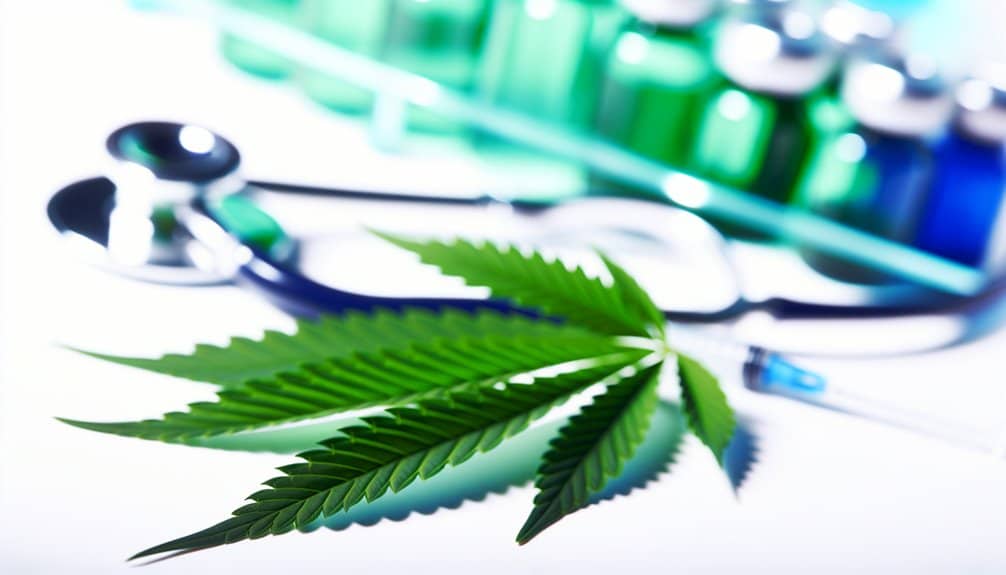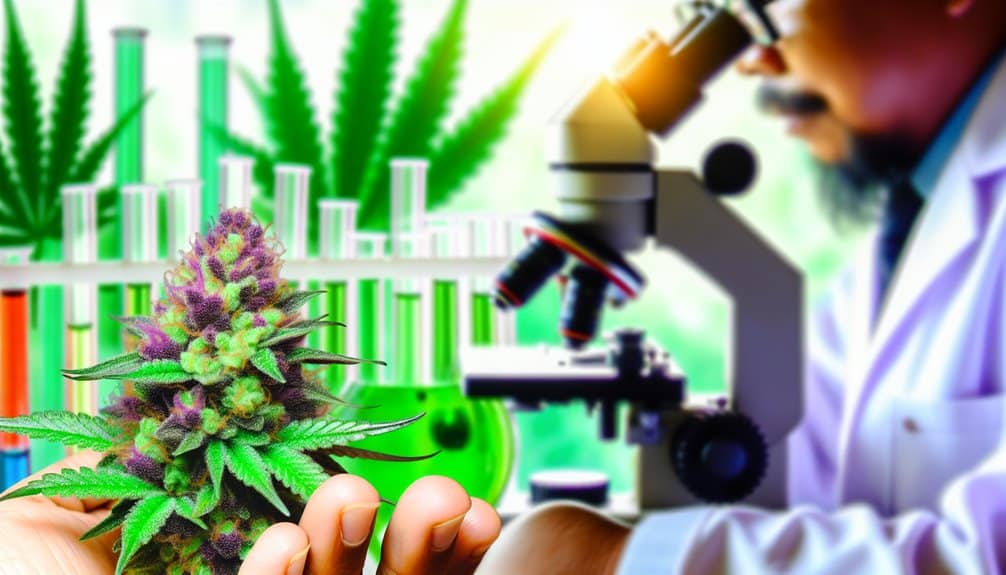Maneuvering the world of medical marijuana can feel like walking through a foggy maze, full of twists, turns, and dead ends. You've probably heard about its potential benefits for conditions like chronic pain and anxiety, but what about the risks? Are you aware of the possibility of short-term cognitive impairment or the potential for substance use disorders? And then there's the legal side of things – a complex jungle of federal and state laws. Stay tuned as we unravel the threads of this intricate issue.
Understanding Medical Marijuana: An Overview

While medical marijuana originates from the *Cannabis sativa* plant, it's important to understand that it contains over 100 different chemicals, known as cannabinoids. The two main ones are THC and CBD, each having different effects. THC, for instance, is the psychoactive component that causes the "high," while CBD doesn't produce that sensation. You can consume medical marijuana in various ways – smoking, vaporizing, eating, or as a liquid extract. However, strain variability introduces a degree of unpredictability in the cannabinoid effects. It's worth noting that despite being legal in many states for medical use, it remains federally illegal in the U.S., adding a layer of complexity for its use. Due to this, researchers require special licenses and must follow strict procedures to study it. Medical marijuana is primarily used to manage and alleviate symptoms rather than treating the underlying conditions themselves, which differentiates it from many conventional treatments (symptom management).
Therapeutic Benefits of Medical Marijuana
Despite being mired in controversy, medical marijuana has shown significant therapeutic benefits in treating various medical conditions. Its neurological benefits are particularly remarkable. For instance, it's been utilized to reduce spasms in multiple sclerosis and manage tics in Tourette's syndrome. In fact, the FDA has approved Epidiolex, a CBD-based drug, for treating certain types of epilepsy. Medical marijuana also seems to have a role in mental health. While more research is needed, some evidence suggests it can reduce anxiety and improve PTSD symptoms. Plus, it's known for appetite stimulation, helping prevent weight loss in individuals with HIV and AIDS. It's clear that medical marijuana offers potential benefits for a variety of conditions, enhancing the quality of life for many patients. Moreover, its use in chronic pain management, especially neuropathic pain, has been backed by numerous studies.
The Role of Medical Marijuana in Pain Management

As you navigate the world of pain management, you may find medical marijuana standing out as a promising alternative. Through cannabinoid mechanisms, it interacts with pain pathways, providing relief, particularly for chronic non-cancer pain conditions.
- Medical marijuana is effective in reducing pain, comparable to traditional pain medications, with a safer profile and fewer side effects.
- It can replace NSAIDs or complement opiates, working through different mechanisms for a diverse approach to pain management.
- Its use spans various types of pain, from neuropathic to rheumatoid arthritis, offering a broad-spectrum solution.
- Despite potential side effects like sedation, it's generally safe and tolerable, given proper dosage and physician guidance.
Potential Uses of Medical Marijuana in Mental Health
Shifting gears from pain management, let's explore the potential uses of medical marijuana in mental health. It's reported that many individuals resort to marijuana for anxiety management, particularly those suffering from social anxiety disorder. Lower doses of THC and any dose of CBD can decrease anxiety. However, caution is advised as short-term benefits may lead to long-term risks like substance use disorders. As for depression treatment, the effectiveness of cannabis remains inconclusive. Current trials suggest CBD may alleviate symptoms of schizophrenia and anxiety. However, more substantial research is needed. Remember, individual responses to marijuana can vary, and frequent use may lead to tolerance and potential cannabis use disorder. It's a complex field needing more exploration.
Side Effects and Risks of Medical Marijuana Use

While medical marijuana has significant therapeutic potential, it's crucial to be aware of the side effects and risks associated with its use. Short term effects may include euphoria, altered senses, impaired memory, and dizziness. However, it's the long term risks that require close attention.
- Prolonged use can lead to negative effects on attention, learning, and memory, particularly in young adults.
- There's an increased risk of schizophrenia in individuals already predisposed to the disorder.
- Health issues related to smoking, such as lung damage and heart disease, are also a concern.
- Finally, long-time users of high-dose THC may experience severe vomiting known as cannabinoid hyperemesis syndrome.
Legal Implications and Controversies Surrounding Medical Marijuana
Delving into the legal implications of medical marijuana, one is immediately confronted with a glaring conflict between federal and state law. This clash creates legal challenges for you, whether you're a provider or a patient. The policy conflicts also make it difficult for healthcare establishments to navigate through the regulations. Despite the legalization of medical marijuana in many states, federal law, which classifies marijuana as a Schedule I drug, supersedes. This conflict puts providers at risk of losing federal reimbursement and patients at risk of prosecution. As a result, it's essential to consult with legal counsel to assess these risks. Policy changes are possible, but they're complex and require large-scale clinical trials. Be mindful of this complex and volatile legal environment.
Future Research and Developments in Medical Marijuana

Given these legal complexities, it's clear why the focus is now turning towards future research and developments in medical marijuana. You'll notice two key areas of interest: cannabinoid exploration and delivery innovations.
- Cannabinoid exploration is expanding beyond THC and CBD, with studies delving into less common cannabinoids, terpenes, and flavonoids. The goal is to uncover the therapeutic potential of these compounds and the entourage effect they may exhibit.
- Delivery innovations are also on the rise. New routes of administration are being developed, along with a wider variety of edible products. The aim is to improve consistency, quality, and personalized medicine delivery systems.
These advancements could revolutionize the medical cannabis industry, offering more effective, precise, and tailored treatments for numerous conditions.
Conclusion
Charting the world of medical marijuana is like sailing a ship in uncharted waters. You've learned about the potential therapeutic benefits, such as pain management and mental health support, but also the potential risks and legal complexities. The journey to understanding is far from over, with future research paving the way. Remember, every decision, like every wave, has potential for both harm and healing. Make informed choices and stay abreast of the latest developments.
If you're curious to learn more about how medical marijuana can fit into your wellness journey, I invite you to visit Fells Point Cannabis Docs of Maryland or give them a call at (410) 401-4200. The friendly team there is ready to answer your questions and help guide you through the process. Don't hesitate to reach out; you're not alone on this journey!
